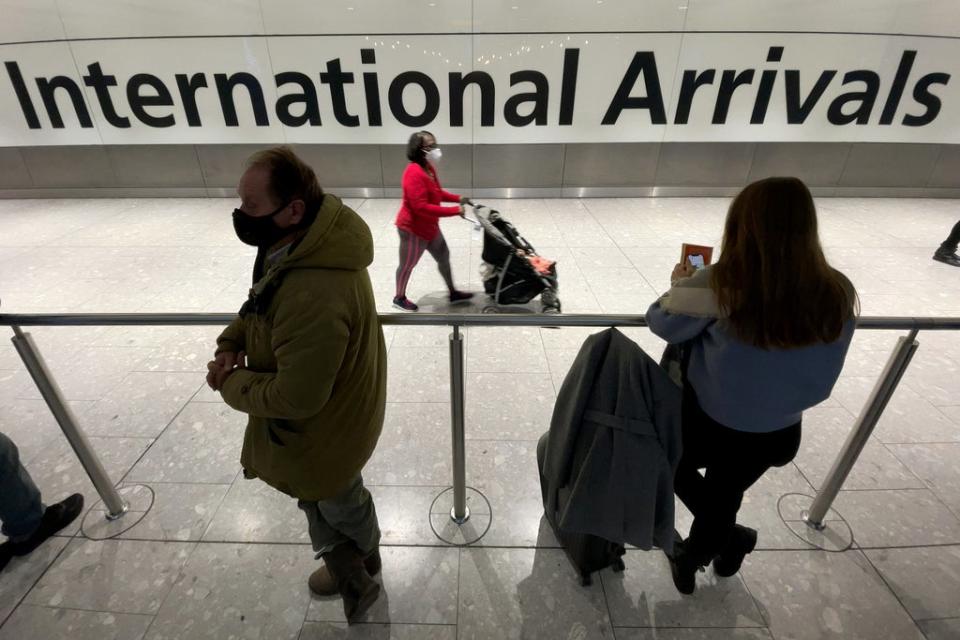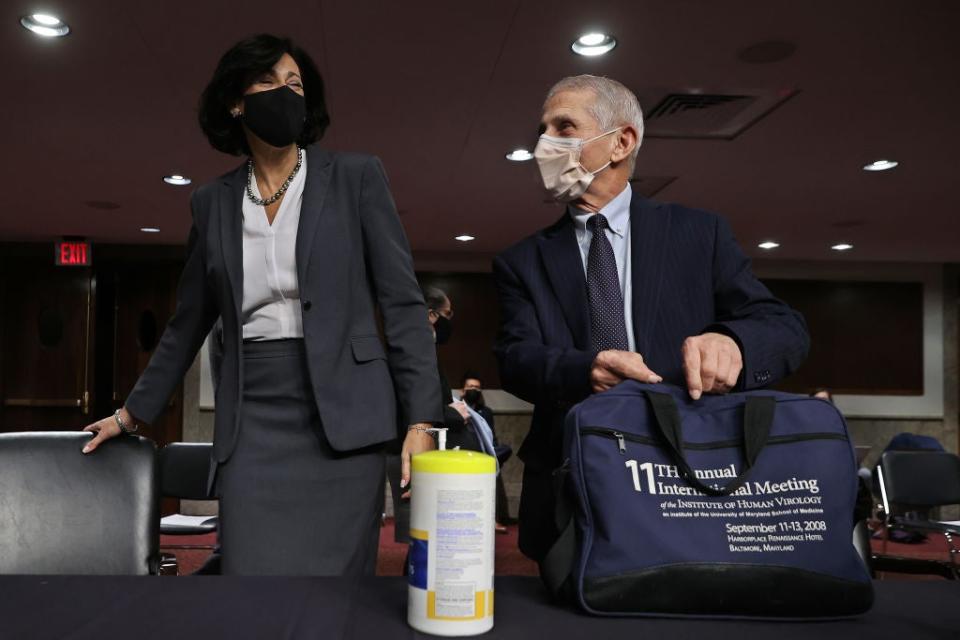Omicron: New Covid variant ‘of concern’ named by WHO

The World Health Organisation has designated the new Covid-19 variant Omicron.
The variant, which originated in southern Africa, is of growing concern to public health officials who fear it may be more transmissible than previous strains and vaccine-resistant.
The United States announced on Friday afternoon it was joining European countries in closing its borders to eight African countries where the variant has been detected.
The US said it would be restricting travel to South Africa, Botswana, Eswatini, Lesotho, Mozambique, Namibia, Malawi and Zimbabwe from Monday.
“President Biden has promised to take every measure necessary to keep Americans safe and defeat the pandemic, and this was a step recommended by U.S. government medical experts and the COVID-19 Response Team,” a White House official said in a statement.
The ban does not apply to American citizens and lawful permanent residents, the official said.
The variant, previously known as B.1.1.529, has been identified in Israel, Hong Kong and Europe.
Belgium confirmed Europe’s first case just hours after South Africa had identified the new variant, and the European Commission has now proposed that all EU member states suspend travel from countries where it has been detected.
The United Kingdom imposed travel restrictions on flights from six countries in southern Africa from midday Friday (7am EST).
“More data is needed but we’re taking precautions now,” UK Health Secretary Sajid Javid wrote on Twitter, adding that flights will be temporarily banned and UK travellers must quarantine.
European Commission President Ursula von der Leyen said it was vital for the continent to act “swiftly, decisively and united”, and called for EU citizens to get vaccinated.

She added: “All air travel to these countries should be suspended until we have a clearer understanding about the danger posed by this new variant.”
Belgium health officials said a case had been detected in a traveller returning from Egypt on 11 November.
In the United States, the White House’s chief medical adviser Anthony Fauci told CNN US public health officials were “rushing” to get data from their counterparts in South Africa to assess whether vaccines are effective against the new strain.
“We want to find out, scientist-to-scientist, exactly what is going on,” said Dr Fauci, director of the National Institute of Allergy and Infectious Diseases.
Dr Fauci said the variant may already be spreading in the United States.
“Of course anything is possible, we don’t know that. There is no indication that it is right now,” he told CNN.
Scientists in the US were holding emergency meetings with health officials in South Africa on Friday to learn more abut the strain, Dr Fauci said.
The US could reimpose travel bans to affected countries once it learns more about the variant, Dr Fauci said.

Financial markets across the world tumbled on Friday on news of the new strain.
The Dow Jones plunged 2.5 per cent, it’s worst day since October 2020. The S&P 500 closed down 2.3 per cent, while the Nasdaq fell 2.2 per cent.
In the UK, $96 million was wiped from the FTSE100, the index of largest 100 companies.
The European Stoxx 600 closed down almost 3.7 per cent.
Spain’s IBEX fell by 5.0 per cent, France’s CAC index dropped by 4.75 per cent, Germany’s DAX slipped by 4.15 per cent.
The price of oil also plummeted by 9 per cent, to a new two-month low.
The pathogen is thought to have developed in an immunocompromised person whose immune system was unable to purge itself of the virus, allowing it to mutate time after time before transmission to somebody else.
In a statement, the WHO said preliminary evidence suggests the variant carries a higher risk of reinfection than other strains.
The WHO said it would take weeks to determine how effective vaccines were against the new strain, which was first identified this week.
Dr Eric Feigl-Ding, an epidemiologist and senior fellow at the Federation of American Scientists (FAS), tweeted that the variant has more than double the number of “bad spike mutations” compared with the highly transmissible Delta variant.
Cases of the Delta variant were already spiking in many European countries.
New daily Covid cases surged to 50,000 in the UK, the highest one-day tally in more than a month.
In the US, cases are creeping up again to the highest levels since mid-October.
According to the Centers for Disease Control and Prevention, there were 100,000 new cases on 23 November, and the 7-day average of new cases reached 94,000.
New York Governor Kathy Hochul said the state was on “high alert”.
“We will continue to actively monitor virus samples and will continue working with the CDC and WHO to closely follow developments.”
Previous Covid-19 variants have included Delta, Omega and Alpha, and take their names from letters in the Greek alphabet.
Read More
Fauci says US may block travel from countries again if new Covid variant evades vaccine
CDC and White House non-committal on US travel restrictions over new Covid-19 variant
Omicron Covid variant – live: EU to halt flights as first European case reported
What is Plan B for tackling Covid in the UK this winter?
Bring back mandatory masks to defend against a winter Covid outbreak
Holidaymakers may need three jabs to travel abroad next summer

 Yahoo News
Yahoo News 
